Army
Military Reaction To Pakistani Provocations More Likely Under PM Modi: U.S. Intel
Published
1 year agoon
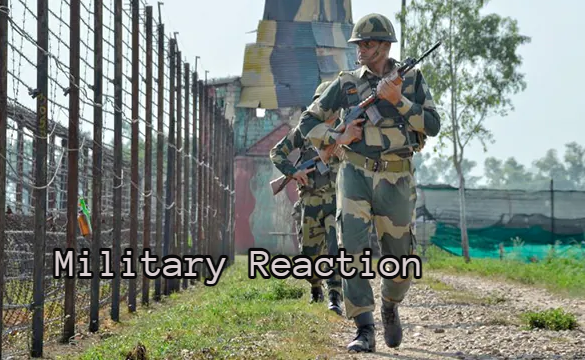
The report added that India is more likely than in the past to use military force as a response under PM Modi’s leadership
New Delhi:- The American intelligence community has informed lawmakers that it anticipates rising tension between China and India as well as between China and Pakistan, with a potential for conflict between them.
It also mentioned that India is more likely than in the past, under PM Modi, to use military force in retaliation for “perceived or real” provocations from Pakistan.
This assessment on Wednesday is a component of the annual threat assessment of the US intelligence community that was provided to the US Congress during a Congressional hearing by the Office of the Director of National Intelligence.
Read Also:- Sri Lanka scored 305 runs against New Zealand.
Although India and China have held bilateral border discussions and settled border disputes, the report predicted that relations would still be strained after the two nations’ deadly conflict in 2020, which was the most serious in decades.
The increased military stances taken by China and India along the disputed border raise the possibility of an armed conflict between the two nuclear-armed nations, which could directly endanger US citizens and interests and necessitate US intervention. It said that ongoing low-level friction on the Line of Actual Control (LAC) has the potential to escalate quickly as previous standoffs have shown.
Since the eastern Ladakh military standoff between China and India in May 2020, relations between the two countries have essentially been frozen.
According to India, relations with China cannot return to normal unless there is tranquilly in the border regions.
The risk of an escalating cycle between two nuclear-armed states makes the crises between India and Pakistan particularly concerning, the report claims. Following the renewal of the ceasefire along the Line of Control by both sides in the early months of 2021, New Delhi and Islamabad are likely inclined to maintain the current calm in their relationship.
However, Pakistan has a long history of supporting anti-India militant groups, and under Prime Minister Narendra Modi’s leadership, India is more likely than in the past to respond to perceived or real Pakistani provocations with military force. The perception of heightened tensions on both sides raises the risk of conflict, with violent unrest in Kashmir or a militant attack in India being potential flashpoints,” it said.
The Kashmir dispute and the cross-border terrorism coming from Pakistan have strained ties between India and Pakistan.
India has insisted that terrorism and talks cannot coexist and that Islamabad should create a favourable environment for the restart of negotiations.
A counterterrorism dialogue session has been held in the interim between Pakistan and the US.
A variety of subjects were discussed over the course of the two days of discussions, including counterterrorism cooperation at multilateral fora, assessments of the regional counterterrorism environment, cyber security, and battling violent extremism.
The two sides discussed their experiences in preventing the financing of terrorism during the conversation. They reaffirmed their resolve to combat terrorism in all of its guises and incarnations as a global threat.
The US-Pakistan counterterrorism dialogue, according to State Department spokesperson Ned Price, offers “a chance for the United States to convey our willingness to work with Pakistan” to address terrorist threats and counter violent extremism, threats that are present in the region as well as those that have the potential to go beyond the region.
Fighting threats to regional security is something we both care about, Mr. Price said.
“The strength of our partnership with Pakistan is a major factor in whether we can achieve our goal of a secure, stable South and Central Asia free from terrorism. The conversation is evidence of our shared commitment to a strong security partnership and provides an opportunity for an open discussion of the actions we can take in concert to combat all terrorist organisations that pose a threat to regional and international stability, the official said.
He was responding to a question about whether the US raises with Islamabad the issue of Pakistani army and ISI support for terrorist groups such as Lashkar-e-Taiba, which operates in Kashmir, and Khalistani terrorist groups.
“In order to meet these challenges, the United States wants to strengthen our alliance. Naturally, we are concerned about any group that jeopardises regional and global stability. In the context of this conversation about counterterrorism, we talked about it “said Mr. Price.
You may like
-
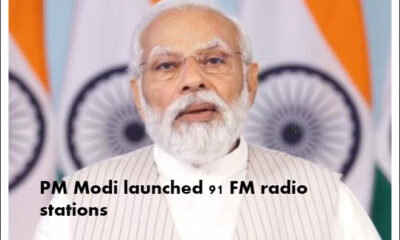

PM Modi launched 91 FM radio stations
-


On April 20, PM Modi will speak at the World Buddhist Summit
-


The first Apple Store will open in Mumbai and Delhi
-
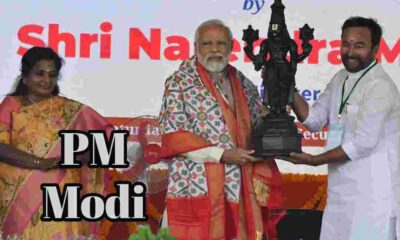

When criticising family rule in Telangana, PM Modi refrains from criticising KCR
-
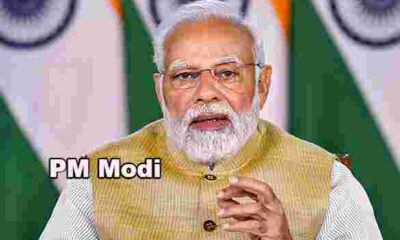

Why did PM Modi receive a grey tick on Twitter, while the Adani Group received a gold tick?
-
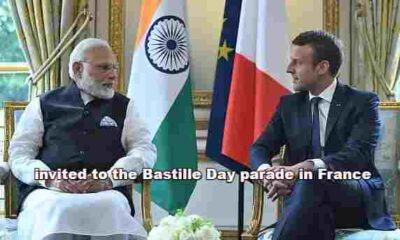

PM Modi has been invited to the Bastille Day parade in France

